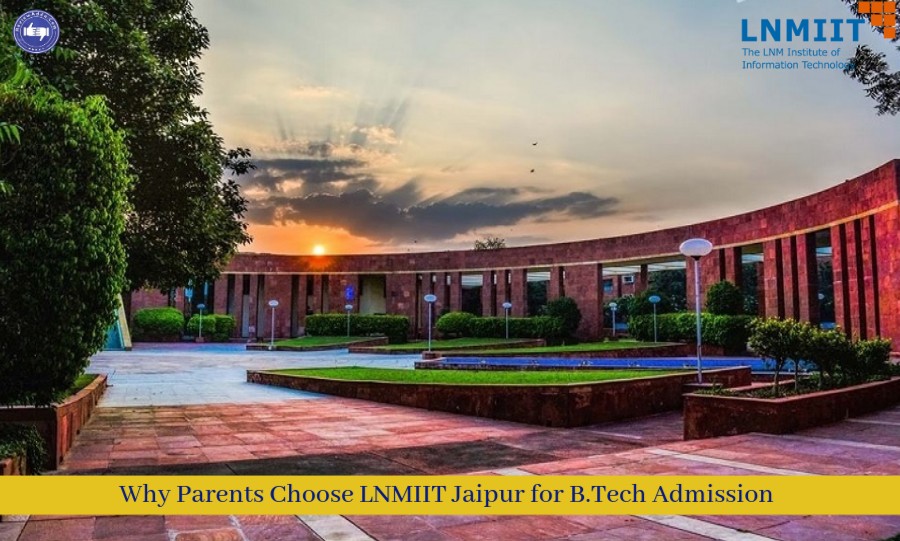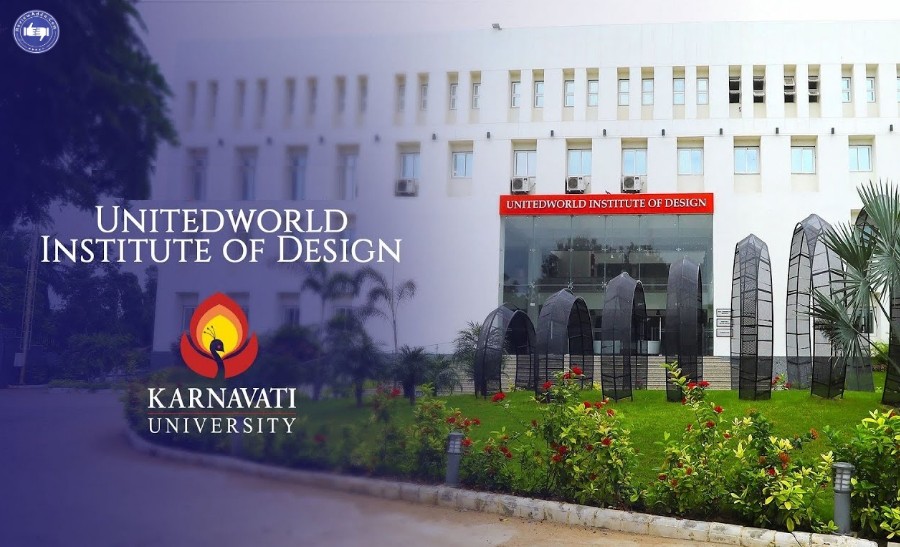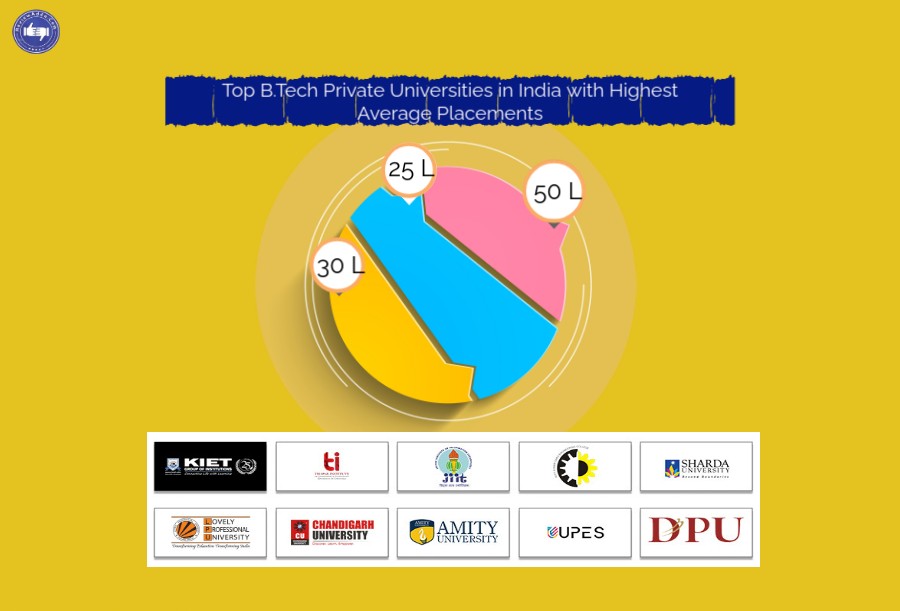PGCE VS PgCTL or B.Ed Vs QTS
Understanding Teacher Training Qualifications: PGCE vs. PgCTL vs. B.Ed vs. QTS
When thinking about a profession in teaching, it can be overwhelming to comprehend the different qualifications that are offered. This article will explain the differences among the Postgraduate Certificate in Education (PGCE), Postgraduate Certificate in Teaching and Learning (PgCTL), Bachelor of Education (B.Ed), and Qualified Teacher Status (QTS). We will explore their structures, benefits, and suitability for different aspiring educators.
Overview of Teaching Qualifications
1. Postgraduate Certificate in Education (PGCE)
What is PGCE?
The PGCE is a well-respected certification for those looking to pursue a career in teaching in England, Wales, and Northern Ireland. It aims to provide graduates with theoretical knowledge and practical teaching skills, serving as a complete entryway into the teaching field. The PGCE aims to train teachers to address the different requirements of students in different educational environments.
Structure and Requirements
Duration
The full-time PGCE program usually spans one academic year. This rigorous program enables participants to engage in academic learning and hands-on teaching opportunities.
Components
The program consists of:
-
Significant School Placements: Students participate in practical teaching opportunities in schools, which are vital for putting into practice the theoretical knowledge gained in classes.
- Academic Study: This covers topics such as educational theories, teaching methods, and managing classrooms.
Entry Requirements
To be eligible for a PGCE program, candidates generally need:
-
A bachelor's degree from an accredited college or university.
- Typically, specific GCSE qualifications require at least a grade C/4 in English and Mathematics. Certain programs may require additional subject-specific criteria.
Benefits of PGCE
-
Academic Rigor: The PGCE provides a robust theoretical foundation in educational research and teaching methodologies. This academic grounding helps future educators understand the principles behind effective teaching practices.
- Global recognition: The PGCE is acknowledged worldwide, opening up chances to teach in foreign countries. Numerous nations place high importance on this credential because of its strict academic criteria.
- Credits Towards Further Study: Completion of a PGCE can result in graduates receiving around 60 credits that can be used towards obtaining a Master's degree in education or similar fields, allowing for additional career growth.
How does the PGCE prepare students for teaching in diverse educational settings
The PGCE aims to get future teachers ready for the challenges of teaching in a variety of educational environments. This program merges challenging academic learning with hands-on practical training, preparing students with the necessary skills and knowledge to succeed in different classroom settings. Here’s how the PGCE prepares students for teaching in diverse educational contexts:
1. Comprehensive Curriculum
The PGCE program consists of a comprehensive curriculum that addresses important subjects such as:
-
Educational Theories: Students explore diverse pedagogical theories and their applications in various learning settings. This basic understanding assists them in recognizing the diverse requirements of students from various backgrounds.
- Inclusive Education: Training for inclusive education focuses on teaching practices that include all learners, such as those with special educational needs and disabilities (SEND) and students from diverse cultural backgrounds, to prepare future educators.
2. Practical Teaching Experience
School Placements
One important element of the PGCE program includes hands-on teaching experience in various educational environments. These opportunities permit students to participate.
-
Experience Varied Contexts: Trainees gain experience in diverse settings, including urban, rural, and multicultural schools. This experience assists them in learning how to adjust their instructional strategies to cater to various student groups.
- Enhance Classroom Management Skills: By gaining practical experience, students acquire successful techniques for handling behavior and creating a positive learning atmosphere, which is essential in varied classrooms with diverse student needs.
3. Focus on Cultural Competence
The PGCE focuses on the significance of being culturally competent, training teachers to understand different cultures:
-
Comprehend and Value Diversity: Teachers are educated to acknowledge and respect cultural variations in their students. This comprehension promotes a welcoming environment where every student feels appreciated.
- Adjusting Teaching Methods: Educators change their teaching techniques according to the cultural backgrounds and learning styles of students to improve engagement and learning results.
4. Supportive Learning Environment
Collaborative Learning
The PGCE creates a cooperative setting for learning, allowing trainees to collaborate.
-
Exchange Experiences: Collaborating with classmates from different backgrounds enables students to exchange perspectives and tactics for managing diversity in the educational field.
- Get feedback: Consistent input from skilled mentors and tutors assists learners in honing their teaching techniques and building assurance in their capacity to teach well in various environments.
5. Emphasis on Reflective Practice
The program promotes a reflective practice culture, instructing students on how to do so.
-
Critically Evaluate Their Teaching: Trainees critically assess their teaching through self-reflection and peer evaluations to pinpoint areas for enhancement and modify their teaching techniques accordingly.
- Learn from Experience: Gaining insights from past experiences is crucial for aspiring educators to enhance their ability to assist a wide range of learners more effectively through placements.
6. Networking Opportunities
The PGCE offers many chances to connect with experts in the field, which can be extremely valuable for aspiring educators.
-
Establishing Professional Relationships: Trainees have the opportunity to network with seasoned educators to receive advice on effective teaching methods for various settings through placements and guest speaker events.
- Access to Resources: Networking can also provide new teachers with access to resources and support systems that assist them in navigating challenges related to diversity in education.
To sum up, the PGCE readies students for teaching in various educational environments by merging theoretical understanding with hands-on training. The PGCE prepares future educators with essential skills for teaching in a multicultural society by focusing on cultural competence, collaborative learning, reflective practice, and professional networking. This preparation improves their abilities as educators and also has a positive impact on the learning of all students they come across in their profession.
2. Postgraduate Certificate in Teaching and Learning (PgCTL)
What is PgCTL?
The PgCTL is designed for educators who want to improve their teaching methods without needing to obtain QTS. This credential emphasizes enhancing teaching abilities and strategies rather than in-depth theoretical studies.
Structure and Requirements
Duration
PgCTL programs can have different lengths depending on the institution, but they are typically shorter than PGCE programs. Numerous programs provide adaptable schedules suitable for professionals who are employed.
Focus
The PgCTL emphasizes:
-
Practical Teaching Skills: Practical Teaching Skills focus on creating efficient teaching strategies that can be easily used in the classroom.
- Learning Strategies: Educators acquire skills to adjust teaching approaches to accommodate different learning needs.
Benefits of PgCTL
-
Flexible Learning Options: PgCTL courses offer flexible learning options such as part-time or online formats, which cater to educators juggling work and study responsibilities.
- Professional Development: This qualification is ideal for teachers looking to improve their skills without pursuing full QTS, allowing them to enhance their effectiveness in the classroom.
How does the PgCTL prepare students for teaching in diverse educational settings
The PgCTL aims to improve educators' teaching abilities, especially in various educational environments. This certification emphasizes practical teaching methods and techniques necessary for meeting the diverse needs of students. Here’s how the PgCTL prepares educators for teaching in diverse environments:
1. Focus on Practical Teaching Skills
The PgCTL emphasizes the development of practical teaching skills that are directly applicable in the classroom. This includes:
-
Hands-On Learning: Individuals participate in actual teaching situations, giving them the opportunity to hone and perfect their teaching methods.
- A Variety of Teaching Approaches: Educators are motivated to try out different teaching methods to accommodate a wide range of learning styles and abilities.
2. Understanding of Diverse Learning Needs
Cultural Competence
The PgCTL program consists of elements that center on cultural proficiency, getting teachers ready to:
-
Acknowledge Diversity: Teachers are trained to recognize and value the diverse cultural backgrounds of their students, an essential factor in fostering an inclusive classroom atmosphere.
- Modify Training: Educators are provided with techniques to adjust their teaching approaches according to the various requirements of students, guaranteeing that all learners can effectively interact with the content.
3. Emphasis on Inclusive Practices
The PgCTL advocates for inclusive education, crucial in modern classrooms with diverse students and varied abilities. Key aspects include:
-
Differentiated Instruction: Educators are taught how to customize their lessons to cater to the specific requirements of students, including those with special educational needs and disabilities (SEND).
- Collaborative Learning: The program promotes working together, fostering a community and providing support for a variety of learners.
4. Reflective Practice
Reflective practice is a key focus of the PgCTL program.
-
Self-Assessment: Teachers should take time to consider their teaching practices, recognizing both their positive aspects and areas that need development.
- Feedback Mechanisms: Regular feedback from peers and mentors helps participants refine their practices and adapt to the dynamic needs of their classrooms.
5. Networking and Professional Development
The PgCTL provides opportunities for educators to build a professional network, which is essential for ongoing development:
-
Supportive Community: Participants connect with fellow educators, sharing resources, strategies, and experiences that enhance their teaching practices.
- Career Support: The program often includes career guidance, helping educators navigate job opportunities in diverse educational settings.
6. Regulatory Readiness
The PgCTL is in line with present education standards and regulations, making sure educators are ready to fulfill the needs of contemporary classrooms.
-
Acknowledgment: The certification is acknowledged on a global scale, facilitating educators to operate in diverse educational frameworks worldwide.
- Adherence to Regulations: Training aims to provide teachers with the necessary abilities to adhere to standards in various educational settings.
The PgCTL equips teachers for instructing in a variety of educational environments by emphasizing practical skills, cultural competence, inclusive practices, reflective learning, networking opportunities, and regulatory preparedness. The PgCTL ensures that teachers can effectively meet the diverse needs of students in modern multicultural classrooms by providing essential tools.
3. Bachelor of Education (B.Ed)
What is B.Ed?
The B.Ed is a bachelor's degree that is specially created to groom students for a teaching profession right from the beginning. It offers a complete education that combines theory and practice.
Structure and Requirements
Duration
Typically, a B.Ed program takes between three to four years to complete, depending on the institution and specific course structure.
Components
The B.Ed combines:
-
Educational Theory: Educational Theory involves students studying child development, curriculum design, educational psychology, and classroom management.
- Practical Teaching Experience: Teaching placements during the course provide students with practical experience to apply theoretical knowledge in real-world situations.
Benefits of B.Ed
-
Comprehensive Training: The B.Ed provides comprehensive training in different areas of education, getting graduates ready for various positions in the field of education.
- Direct Entry into Teaching: Graduates can frequently apply for teaching roles directly without requiring extra credentials such as QTS, making their entry into the profession quicker.
How does the B.Ed prepare students for teaching in diverse educational settings
The B.Ed program is designed to equip future teachers with the skills needed to teach in a variety of educational environments. This readiness is crucial in modern multicultural classrooms, as students have diverse backgrounds and unique educational requirements. This is how the B.Ed prepares future teachers to effectively instruct in these settings:
1. Comprehensive Curriculum
The B.Ed program offers a strong base in educational theory and practical teaching skills, essential for managing diversity in the classroom.
-
Main Subjects: The curriculum includes crucial subjects like child growth, educational psychology, and teaching methods, which aid teachers in comprehending the varying requirements of their pupils.
- Specialized Courses: A lot of B.Ed programs offer courses that concentrate on inclusive education and special needs, equipping educators to assist students with diverse abilities and backgrounds.
2. Practical Teaching Experience
Internships and Field Experiences
Internships and field experiences are an important part of the B.Ed program as they allow students to apply theoretical knowledge in practical settings.
-
Hands-On Learning: Internships provide student-teachers with the opportunity to work directly with students from various backgrounds and learning styles, allowing them to gain valuable experience in handling different behaviors in the classroom.
- Exposure to Real Classroom Dynamics: Encountering real classroom dynamics offers a deeper understanding of classroom management challenges and the interactions between teachers and students from diverse cultural and socio-economic backgrounds.
3. Emphasis on Inclusive Education
The B.Ed program focuses on inclusive education, providing teachers with techniques to establish supportive learning settings for every student.
-
Differentiated Instruction: Future educators are taught how to customize their lessons to address the unique needs of students, guaranteeing that all students can engage with the curriculum.
- Cultural Sensitivity: Teaching involves recognizing cultural distinctions and their influence on learning, so that educators can create an inclusive environment where every student is appreciated.
4. Development of Pedagogical Skills
The primary focus of the B.Ed is to enhance pedagogical skills that are crucial for meeting the various needs of students.
-
Lesson Planning: Students are taught how to create lessons that cater to various learning styles, so that all students can effectively interact with the material.
- Assessment Methods: Training covers a range of evaluation techniques to assess student development and adjust teaching methods accordingly.
5. Reflective Practice
The B.Ed promotes reflective practice, essential for ongoing improvement in teaching.
-
Self-assessment: Educators in training are instructed to carefully review their teaching experiences, recognizing both their strengths and areas needing improvement. This procedure encourages flexibility and quick response to student requirements.
- Feedback Mechanisms: Regular feedback from mentors during internships helps refine teaching practices and enhances professional development.
6. Collaborative Learning Environment
Working together with others is an essential aspect of the B.Ed journey.
-
Collaborative Learning: Student-teachers frequently collaborate on assignments and curriculum development, exchanging ideas and methods for managing diversity in their classroom.
- Community Engagement: Numerous initiatives promote projects within the community to facilitate interaction between aspiring educators and various demographic groups beyond the school environment, bolstering their comprehension of diverse cultural backgrounds.
7. Networking Opportunities
The B.Ed provides numerous opportunities for networking within the education sector:
-
Professional Connections: Forming professional relationships with seasoned educators during internships can offer important mentorship and guidance as newly hired teachers embark on their careers.
- Access to Resources: Networking can provide opportunities to access resources, workshops, and professional development focused on diversity in education.
The B.Ed program thoroughly readies students for teaching in various educational environments with a holistic curriculum focusing on practical experience, inclusive practices, pedagogical skill enhancement, reflective practice, collaborative learning, and networking opportunities. By providing future educators with these necessary resources, the B.Ed program guarantees they are fully ready to face the demands of contemporary classrooms and assist every student in their educational endeavors.
4. Qualified Teacher Status (QTS)
What is QTS?
Qualified Teacher Status (QTS) is a mandatory professional certification for those wanting to work as teachers in state-funded schools in England. It indicates that a teacher has achieved particular national criteria for teaching ability.
Structure and Requirements
Duration
QTS can be achieved through various routes, including:
-
Completing a PGCE alongside QTS.
- An assessment-only route for experienced teachers who can demonstrate their competency without formal training.
Focus
The primary focus of QTS is on:
- Demonstrating Competency: Teachers must show they can effectively manage classrooms and deliver quality education according to national standards.
Benefits of QTS
-
Necessary in State Schools: QTS is a requirement for teaching roles in state-funded schools in England, guaranteeing that teachers adhere to recognized professional criteria.
- Professional Recognition: Having QTS verifies teaching abilities and boosts chances of finding teaching jobs in the UK education sector, making it simpler to land teaching positions.
How does the QTS prepare students for teaching in diverse educational settings
The QTS is a recognized certification that allows people to work as teachers in public schools in England. A crucial element of QTS is its emphasis on training teachers to effectively instruct in various educational environments. Here’s how the QTS framework equips teachers for this important role:
1. Comprehensive Training in Diversity
Understanding Diverse Needs
-
Content of the curriculum: Training in QTS programs covers knowledge of the various requirements of students, such as cultural, social, and economic backgrounds. This fundamental understanding is essential for establishing inclusive classrooms in which every student can succeed.
- Inclusive Education: The education focuses on inclusive practices, equipping educators to cater to the requirements of students with special educational needs and disabilities (SEND) as well as those from different cultural backgrounds.
2. Extensive Practical Experience
School Placements
-
Varied Placement Opportunities: QTS candidates typically engage in multiple school placements across different educational settings. This opportunity enables them to directly encounter the difficulties and interactions of teaching in various settings.
- Practical Experience: Trainee teachers put their theoretical knowledge into practice in real classrooms, adjusting their teaching techniques to suit the diverse requirements of their students.
3. Development of Pedagogical Skills
Differentiated Instruction
-
Customized Teaching Approaches: QTS training stresses the significance of personalized instruction, giving educators tools to adjust lessons according to each student's unique requirements. This make sure that every student can effectively reach the curriculum.
- Assessment Techniques: Assessment methods help teachers evaluate student progress and adjust teaching in diverse classrooms with varying learning speeds.
4. Emphasis on Reflective Practice
Continuous Improvement
-
Self-Reflection: Engaging in reflective practice, QTS prompts teachers to evaluate their teaching efficiency and make any needed changes. This process is crucial for adjusting to the varying needs of students as time goes by.
- Feedback Mechanisms: Feedback mechanisms involve mentors and peers providing ongoing input to help educators improve their teaching methods and effectively assist students with varying needs.
5. Collaboration and Networking
Building Professional Relationships
-
Opportunities for mentorship: QTS programs frequently match new teachers with skilled mentors who offer advice on effective teaching methods in various environments. These connections are extremely valuable for professional development.
- Networking with Peers: Collaborating with other trainees to network provides educators with the opportunity to share insights, resources, and strategies for addressing diversity in their classrooms, creating a supportive community.
6. Awareness of Educational Policies
Staying Informed
-
Understanding Current Standards: QTS training includes awareness of national educational policies regarding inclusion and diversity. Teachers are ready to adjust their teaching methods to comply with these standards, guaranteeing that they adhere to the expectations established by educational authorities.
- Adaptability to Changes: QTS-trained teachers can adjust their teaching strategies to remain effective in diverse classroom settings by staying updated on educational policy changes.
QTS prepares teachers for teaching in a variety of educational environments by providing thorough training in student diversity, practical experience, pedagogical skills, reflective practice, collaboration, and knowledge of educational policies. QTS provides teachers with necessary tools and experiences to effectively tackle the demands of contemporary classrooms and aid students in their educational paths.
Comparison of Qualifications
To help you choose the right path, here’s a comparison of the key qualifications:
Choosing the Right Path
When deciding which qualification to pursue, consider the following factors:
Career Goals:
If you aim to teach in state schools in England, obtaining QTS through a PGCE is essential.
For those interested in enhancing existing teaching skills without pursuing full-time teaching roles, PgCTL may be more suitable.
Time Commitment:
A B.Ed requires a longer commitment but provides comprehensive training from an undergraduate level.
The PGCE offers a quicker route into teaching but demands significant effort during its duration.
Financial Considerations:
Costs can vary significantly between programs; researching funding options or scholarships may be beneficial.
Location Preferences:
If you plan to teach internationally, consider qualifications like the PGCE or B.Ed that are widely recognized outside the UK.
PgCTL and PGCE: Why Are They So Sought-After Teaching Qualifications?
Here’s a comparative overview of the Postgraduate Certificate in Education (PGCE) and the Postgraduate Certificate in Teaching and Learning (PgCTL), highlighting their eligibility criteria, fees, and financial considerations:
Both the PGCE and PgCTL are sought-after qualifications in the field of education, each catering to different needs within the teaching profession. The PGCE is ideal for those seeking formal qualification to teach in schools with an emphasis on theoretical understanding and practical application, while the PgCTL focuses on enhancing existing skills and providing practical strategies for effective teaching without necessarily pursuing QTS.
B.Ed and QTS: Why Are They So Sought-After Teaching Qualifications?
Here’s a comparative overview of the Bachelor of Education (B.Ed) and Qualified Teacher Status (QTS), highlighting their eligibility criteria, fees, and financial considerations:
serving distinct purposes. The B.Ed is foundational for aspiring teachers, providing comprehensive training and practical experience necessary to teach at various levels. In contrast, QTS is crucial for those looking to teach in state-maintained schools in England, ensuring that educators meet established national standards.
Understanding these qualifications helps prospective educators make informed decisions about their career paths in teaching based on their goals and circumstances.
Conclusion
Choosing between PGCE, PgCTL, B.Ed, or QTS ultimately depends on your individual circumstances, career aspirations, and preferred learning style. Each qualification offers unique advantages tailored to different pathways within education. By understanding these distinctions, students and parents can make informed decisions about pursuing a rewarding career in teaching.




.jpg)

